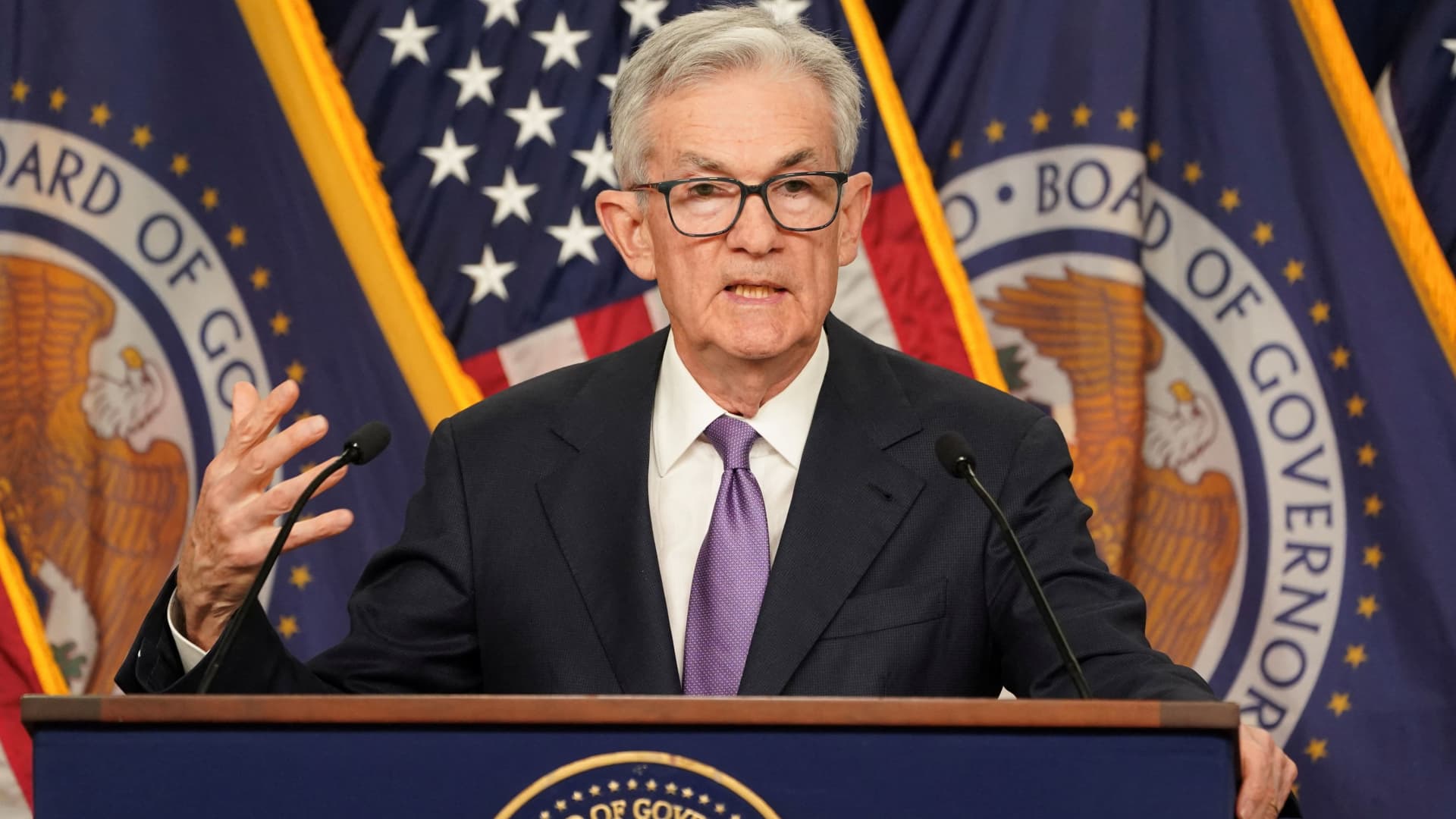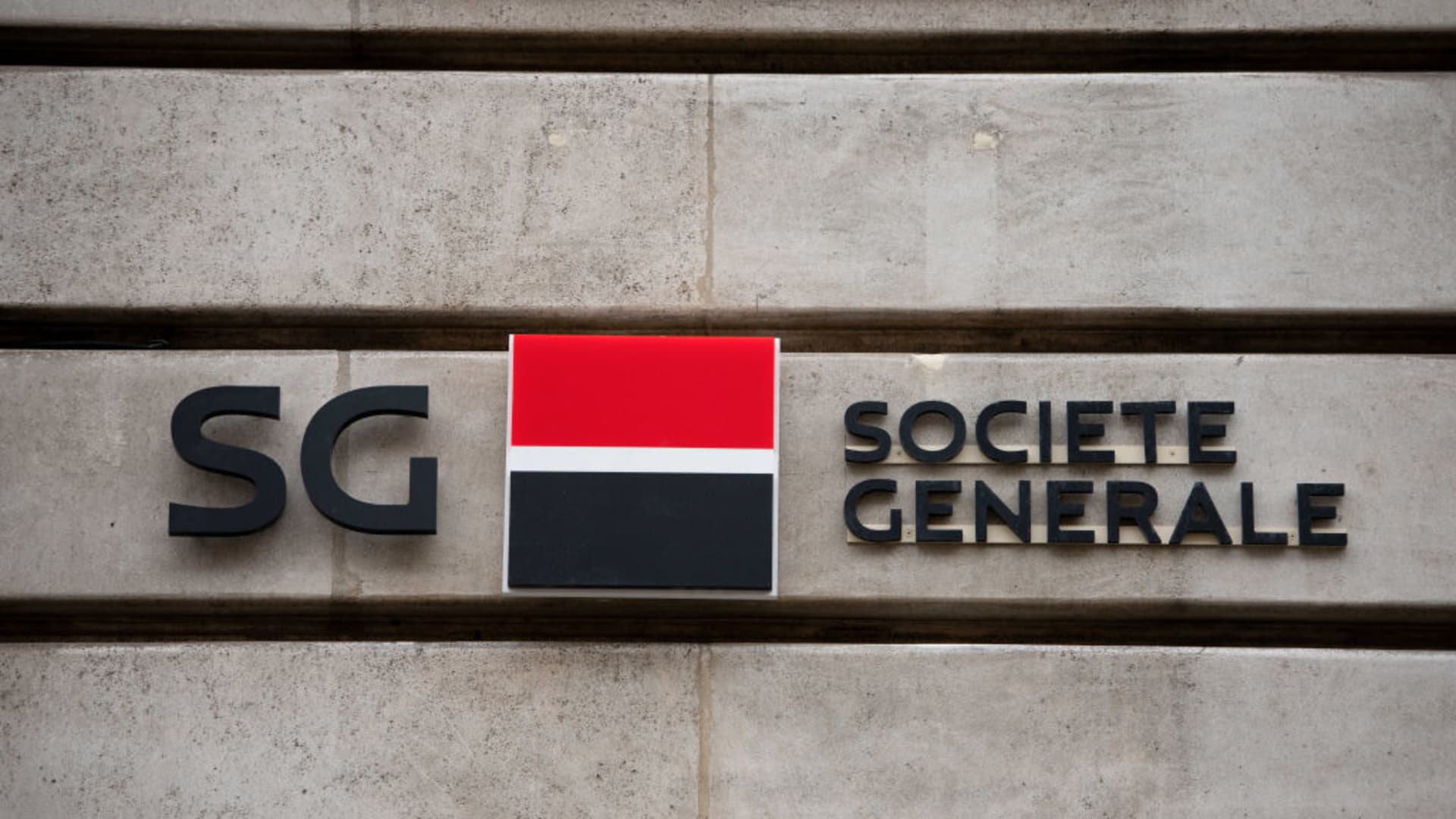
French President Emmanuel Macron speaks during a meeting with members of the AI sector at the Elysee Presidential Palace in Paris, France, May 21, 2024.
Yoan Valat | Afp | Getty Images
PARIS — France is touting itself as the next artificial intelligence superpower.
At the Viva Technology conference in Paris last week, there was a lot of talk about how far France has come as a leader in AI.
The French AI company H, formerly called Holistic, caused a lot of excitement when it raised $220 million in a seed financing round from investors such as the US technology giant Amazon and billionaire ex-CEO Eric Schmidt of Google.
A common theme of French AI firms receiving large sums of money is that they add U.S. tech heavyweights to their shareholder lists.
Earlier this month, France received a flood of new private investment, led by a 4 billion euro ($4.4 billion) commitment from Microsoft, the largest ever in France.
AI everywhere at Viva Tech
At Viva Tech, AI was omnipresent. Behind the large, bright pink “VIVA” sign at the front was an entire alley called “AI Avenue,” surrounded by U.S. tech companies like Salesforce and AWS.
Generative AI was seen everywhere – even at companies you wouldn’t expect.
For example, French beauty giant L’Oreal showcased an AI-powered beauty assistant called “BeautyGenius” at a large booth near the center of the Porte de Versailles conference venue.
Viva Tech’s success has become symbolic for France as part of its ambition to become a leading technology and AI center that can compete with the likes of the US and China.
“France is a leader in artificial intelligence in Europe,” Bruno Le Maire, France’s finance minister, told CNBC’s Arjun Kharpal on Viva Tech last week.
He made it clear that while France is supported by US tech giants, “we want our own artificial intelligence to be created and developed in France.”
Regarding Microsoft’s investment in France, Le Maire said: “Microsoft is very welcome in our country. But the challenge for us is to have our own equipment, our own scientists… and we work very hard for that.”
France has a strong AI research and development ecosystem with key institutions such as Meta’s Facebook AI Research Center and Google’s AI Research Hub in Paris, as well as leading universities.
“France is considered one of the most dynamic innovation centers in Europe,” Etienne Grass, the French managing director of Capgemini Invent, the digital innovation arm of Capgemini, told CNBC. “The country has a thriving startup scene marked by significant advances in AI,” Grass added.
Imran Ghory, partner at Blossom Capital, said that while France has a great track record in research and science, it is struggling to funnel high-quality talent into “great companies.”
AI labs from Meta and Google have created “a training ground for students and researchers to learn from the inside what leading technology companies look and work like,” Ghory said.
“We are now seeing the fruits of this as many researchers and AI engineers are starting to start their own companies.”
In the competition for technological leadership
French President Emmanuel Macron said in an interview with CNBC’s Andrew Ross Sorkin last week that his country is “a leader in the technology industry in Europe.” However, he noted that Europe is “lagging behind” the US and that the continent needs more “big players”.
“It is crazy to have a world in which the big giants only come from China and the USA,” Macron said at the Elysee Palace. He praised Mistral, the French AI company backed by US tech giant Microsoft, and H.
Last week, Macron met at the Elysee with Eric Schmidt, former Google CEO, Yann LeCun, Meta’s chief AI scientist, and James Manyika, Google’s senior vice president for technology and society, among others, to discuss opportunities to join Paris a global location to make AI hub.
Maurice Levy, CEO of advertising and PR giant Publicis Groupe, told CNBC’s Karen Tso that he believes France has the potential to be among the top five countries with the highest AI development. Levy said France is “determined” to narrow the gap between the U.S. and China and Europe on AI.
France could be “among the five largest AI countries in the world after the United States, China, Israel and Great Britain,” Levy said in a television interview last week. He pointed to H’s huge funding round as an example of the dynamics currently surrounding French AI.

According to Levy, about 40% of the tech demos at Viva Tech were AI-related. AI is “something that … is not only on the rise, but has already seen a huge uptick,” he said.
In a fireside discussion last week, Google’s Manyika said many of the innovations the company has brought to market came from engineers in France.
He said Google’s recently launched Gemma AI, a lightweight open-source model, was heavily developed at the US internet giant’s Paris AI center.
According to Dealroom data, France claimed a share of about 20% of total European AI startup funding in 2023, higher than the average of 15% of European funding flowing into AI startups across the bloc.
However, according to Dealroom, France is not the European AI leader, with UK companies making more than twice as many AI and GenAI investments as France.
Innovation versus regulation
France’s Macron said the challenge for Europe was to accelerate AI research and development while regulating it to an “appropriate scale.”

Last week, the EU passed the AI Act, a groundbreaking law to regulate artificial intelligence.
Some technology executives warned that Europe could hamper its AI ambitions by overly restrictive regulation. France is among the countries that have criticized the EU AI law as being too restrictive on innovation.
Pascal Brier, Capgemini’s chief innovation officer, said that while regulation is needed to ensure AI doesn’t become too powerful, it’s important to ensure new laws like the AI Act don’t inadvertently “kill” innovation.
He said regulators should avoid implementing the “principle of precaution” — the idea that AI makers should generally avoid doing things that could cause harm.
“There is no way to stop AI – it’s just the end of the beginning,” Brier told CNBC. “It won’t stay there.”
Source link
2024-05-31 05:54:35
www.cnbc.com













